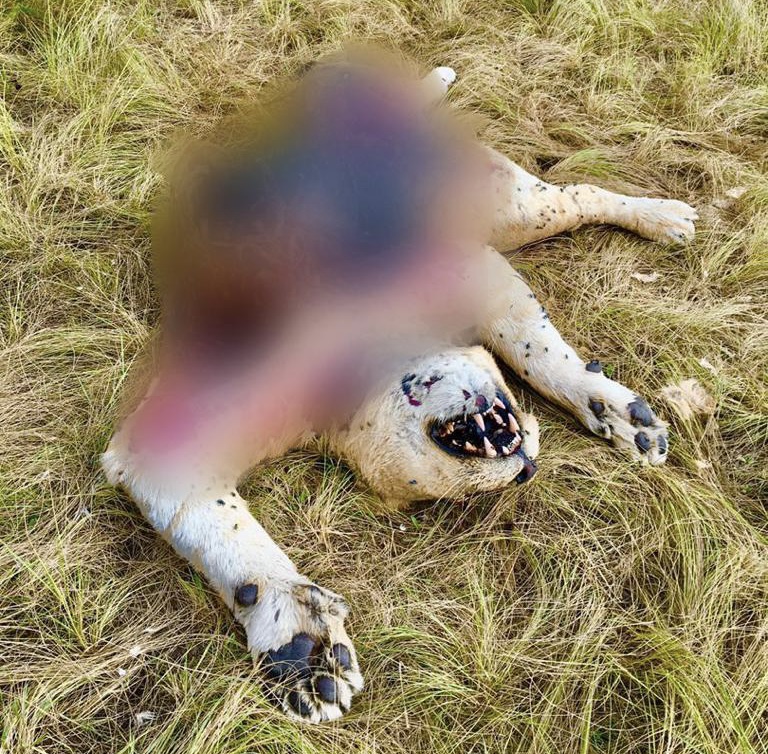The following is an update to the article WAN posted this morning about the six lions that were found dead of suspected poisoning in the Ishasha sector of Queen Elizabeth National Park in Uganda on Friday.
Today, Uganda Wildlife Authority (UWA) released a statement announcing that four people have been arrested in connection with the brutal killing of the six lions. The organization reported that 26-year-old Ampurira Brian, 49-year-old Tumuhire Vincent, 40-year-old Aliyo Robert, and 68-year-old Miliango Davi were arrested last night during a joint operation mounted by UWA, UPDF, and Police in Kyenyabutongo village, Rusoroza Parish, Kihihi Sub County, Kanungu District.
As per UWA, the suspects took the security team to a location where three heads of lions were found hidden in a tree and the fourth one was buried. Horrifically, 15 legs were also found under the same tree. The suspects said they dropped one leg in the park.
Three bottles containing a chemical commonly known as Furadan and a two-litre jerry can of lion fat oil were recovered in a banana plantation. Two spears, one panga, and one hunting net were found hidden in a garden at the home of Tumuhire Vincent.
On Monday evening, UWA received credible information about the people suspected to be behind the killing of the lions, a joint operation by UPDF, Police, and UWA was conducted leading to the arrest of the four suspects. The suspects will be arraigned in the courts of law in Uganda.
___________________________________
Uganda Wildlife Authority announced the heartbreaking news over the weekend that six lions were found dead and dismembered on Friday evening in the Ishasha sector of Queen Elizabeth National Park. The area is known for its tree climbing lions.
According to a statement by the UWA, dead vultures were also found near the deceased lions’ carcasses, which suggests that the animals were most-likely poisoned by unknown people.
Sadly, this is not the first time that lions have been killed in Queen Elizabeth National Park. In April 2018, 11 lions were found dead after a suspected poisoning. A similar situation also happened in May 2010 resulting in the death of five lions.
A team of investigators is currently on the ground collaborating with police in Kanungu district. Given that some of the lions’ body parts are missing, authorities believe the killings to be connected to the illegal wildlife trade.
UWA strongly condemns the illegal killing of wildlife, it not only negatively impacts tourism throughout the country, but also revenue generation which supports conservation and community work in protected areas.
Tourism has been a high foreign exchange earner for the country contributing almost 10% of GDP and 23% of total foreign exports. Nature tourism has been contributing USD $1.6 billion to the economy and also contributes to the well-being of communities surrounding the protected areas for wildlife.
As previously reported by WAN, there are only an estimated 20,000 lions remaining in the African wilderness.
The Uganda Wildlife Authority stated that they will continue to strengthen the protection of lions and other species of wildlife throughout the country.
You can help all animals and our planet by choosing compassion on your plate and in your glass. #GoVeg
